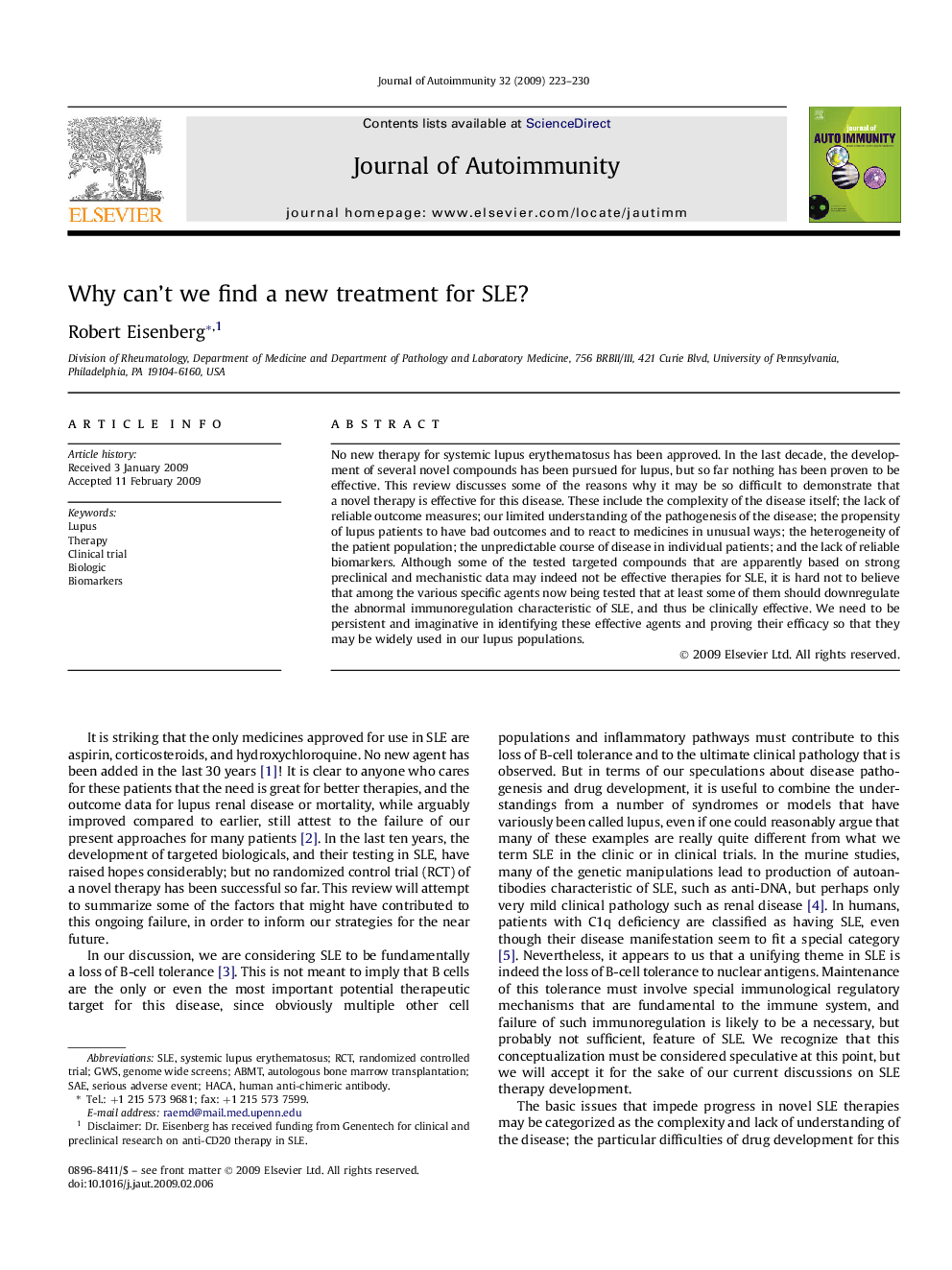| Article ID | Journal | Published Year | Pages | File Type |
|---|---|---|---|---|
| 3368330 | Journal of Autoimmunity | 2009 | 8 Pages |
No new therapy for systemic lupus erythematosus has been approved. In the last decade, the development of several novel compounds has been pursued for lupus, but so far nothing has been proven to be effective. This review discusses some of the reasons why it may be so difficult to demonstrate that a novel therapy is effective for this disease. These include the complexity of the disease itself; the lack of reliable outcome measures; our limited understanding of the pathogenesis of the disease; the propensity of lupus patients to have bad outcomes and to react to medicines in unusual ways; the heterogeneity of the patient population; the unpredictable course of disease in individual patients; and the lack of reliable biomarkers. Although some of the tested targeted compounds that are apparently based on strong preclinical and mechanistic data may indeed not be effective therapies for SLE, it is hard not to believe that among the various specific agents now being tested that at least some of them should downregulate the abnormal immunoregulation characteristic of SLE, and thus be clinically effective. We need to be persistent and imaginative in identifying these effective agents and proving their efficacy so that they may be widely used in our lupus populations.
